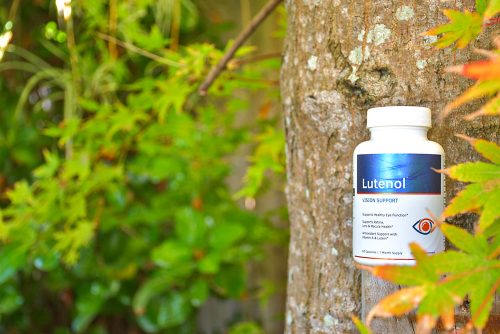I. Introduction
Lutenol is a dietary supplement that has become increasingly popular for its potential benefits to eye health. It is a natural source of Lutein and Zeaxanthin, two carotenoids that are important for maintaining healthy eyes. These two antioxidants can be found in various foods, but sometimes we may not get enough of them from our diet. That’s where Lutenol comes in – it provides a concentrated dose of Lutein and Zeaxanthin to support eye health. In this article, we will explore the science behind Lutenol, its benefits, food sources, factors affecting absorption, and supplementation.
II. The Science behind Lutenol
Lutein and Zeaxanthin are naturally occurring carotenoids that are present in the macula, the central part of the retina that is responsible for detailed vision. These two antioxidants work together to protect the eyes from harmful blue light, reduce oxidative stress, and improve visual acuity. Lutenol contains a blend of Lutein and Zeaxanthin that can help maintain the density of the macular pigment, which decreases with age. Studies have shown that supplementation with Lutein and Zeaxanthin can significantly reduce the risk of developing age-related macular degeneration (AMD), the leading cause of blindness in people over 50.
III. Benefits of Lutenol
In addition to its potential benefits for AMD, Lutenol can also improve visual function and reduce the risk of cataracts. The carotenoids in Lutenol absorb blue light, which can cause damage to the retina over time. By filtering out blue light, Lutenol protects the eyes from oxidative stress and reduces the risk of age-related eye diseases. Some studies have also shown that Lutein and Zeaxanthin can improve visual acuity, particularly in people with low macular pigment density. Other potential benefits of Lutenol include protection against digital eye strain and dry eyes.
IV. Food Sources of Lutein and Zeaxanthin
While Lutenol provides a concentrated dose of Lutein and Zeaxanthin, it’s important to incorporate food sources of these carotenoids into your diet as well. Leafy green vegetables like spinach, kale, and collard greens are excellent sources of Lutein and Zeaxanthin. Fruits like oranges, mangoes, and papayas also contain significant amounts of these carotenoids. Other sources of Lutein and Zeaxanthin include egg yolks, corn, and peas. Aim for at least 6 milligrams of Lutein and Zeaxanthin per day from food sources.
V. Factors Affecting Lutein and Zeaxanthin Absorption
Several factors can affect the absorption of Lutein and Zeaxanthin, including age, genetics, digestive health, and other dietary factors. Older adults may have reduced absorption of these carotenoids, while genetic variations can affect how much Lutein and Zeaxanthin are taken up by the body. Digestive health also plays a role, as Lutein and Zeaxanthin are fat-soluble and require adequate fat intake for optimal absorption. Other dietary factors like high intake of saturated and trans fats can reduce the absorption of these carotenoids.
VI. Lutenol Supplementation
If you’re not getting enough Lutein and Zeaxanthin from your diet, supplementation with Lutenol can be a convenient and effective way to support eye health. Lutenol is available in various forms, including capsules, softgels, and gummies. The recommended dosage of Lutein and Zeaxanthin varies depending on age, health status, and other factors, but generally ranges from 6 to 20 milligrams per day. It’s important to follow the instructions on the supplement label and consult with a healthcare professional before starting Lutenol or any other supplement.
While Lutenol is generally considered safe and well-tolerated, some potential side effects include gastrointestinal upset, headaches, and allergic reactions. These side effects are rare and usually mild, but if you experience any unusual symptoms after taking Lutenol, stop using it and contact your healthcare provider.
VII. Conclusion
Lutenol is a natural and effective way to support eye health by providing a concentrated dose of Lutein and Zeaxanthin. These carotenoids play a vital role in protecting the eyes from age-related damage, reducing the risk of AMD and cataracts, and improving visual acuity. While Lutenol supplementation can be helpful, it’s also important to incorporate food sources of Lutein and Zeaxanthin into your diet and consider factors that may affect absorption. By taking care of your eyes with Lutenol and a healthy lifestyle, you can enjoy clear vision and healthy eyes for years to come.

